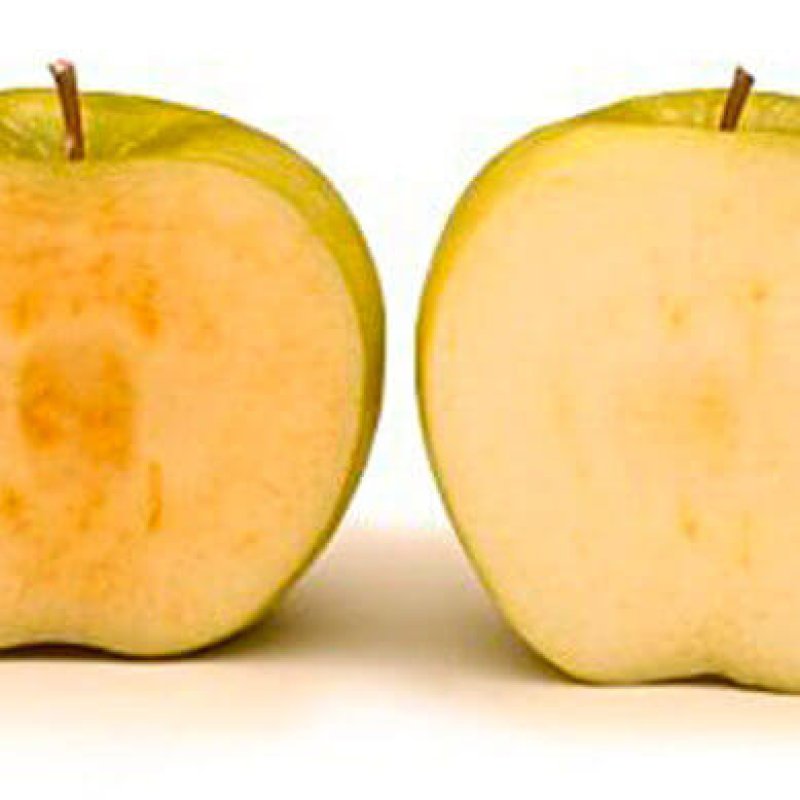The prospect of a new type of genetically modified apple, known as “Arctic Apples,” arriving in the marketplace has many in the food industry concerned because of the potential reaction from activist groups opposed to all GMOs.
The apple, which resists browning after it is sliced, would allow restaurants and other food service companies to serve more sliced apples without using preservatives. The USDA and its Canadian counterpart could approve the apple sometime next year.
Many within the apple industry have anticipated the rollout of a genetically tweaked apple as a potentially positive development. There is no introduction of “foreign” genes and the consumer benefits are obvious. But others are concerned the industry could face renewed broadsides from GMO opponents and labeling proponents. While GMO apples represent only a very small portion of the GM industry, the negative attention they might receive could hinder the progress of accepting other beneficial GM crops.
The problem is not so much with the apple, but with the GMO opponents, many of whom appear to be a part of an agricultural Flat Earth Society that opposes most types of farming developed since 1950. In their American Gothic viewpoint, they attack any individual or corporation associated with genetically modified crops. They do this without benefit of facts that support their scare tactics. They make assertions on the Internet that “no one has proved that GMOs are safe” despite the fact that they have been on the market since the 1990s without any health-associated problems. None of their theories have been subjected to peer reviewed studies.
Read the full, original story: GMO apple only a slice of the bigger issue
Additional Resources:
- Friends of Earth, Arctic Apples spar over whether McDonald’s might sell GM apples, Genetic Literacy Project
- Fruit growers warn GM Arctic Apple could damage fruit’s image, hurt sales, National Post
- Steve Savage: USDA should deregulate Arctic Apples, Applied Mythology































